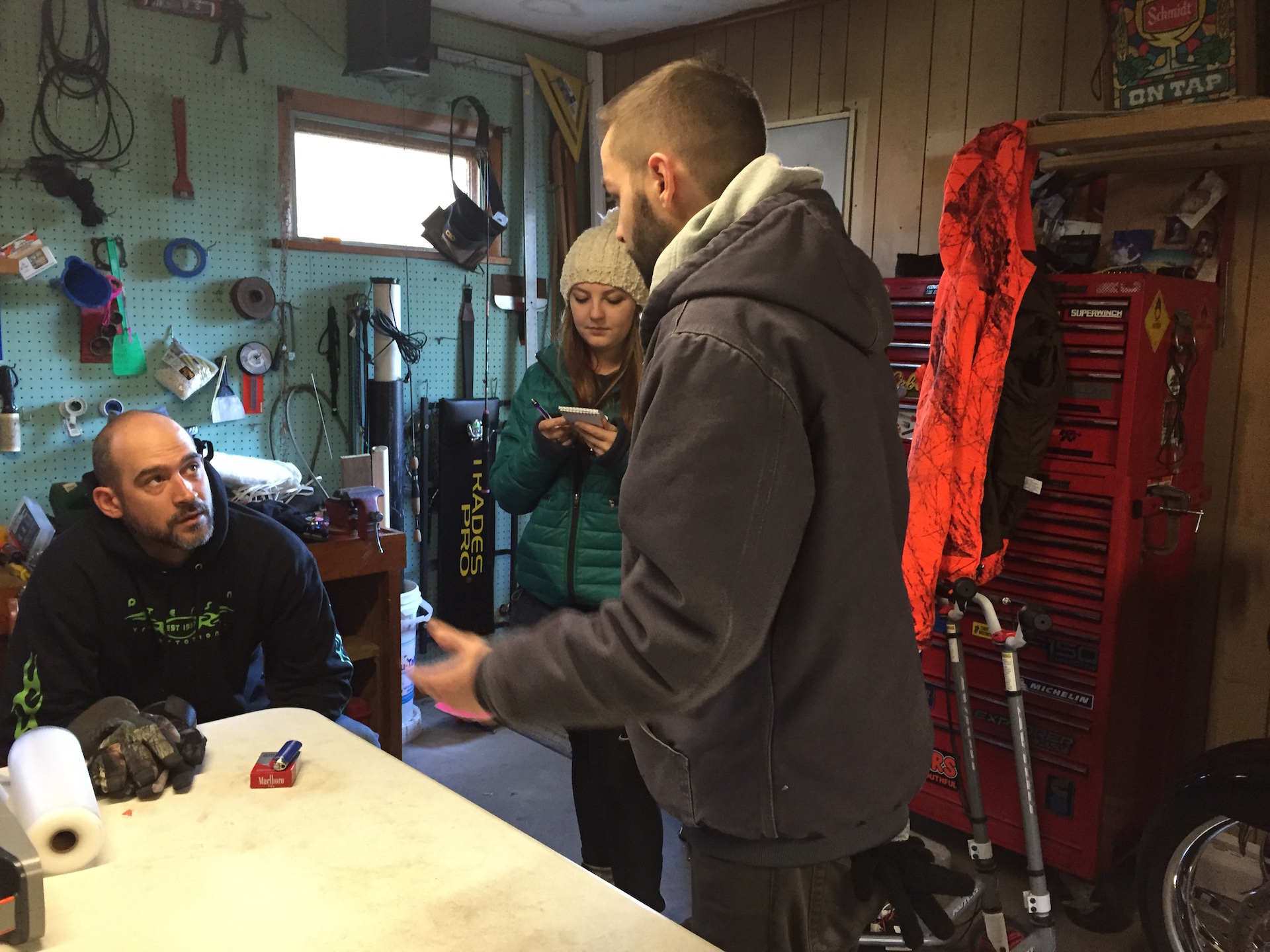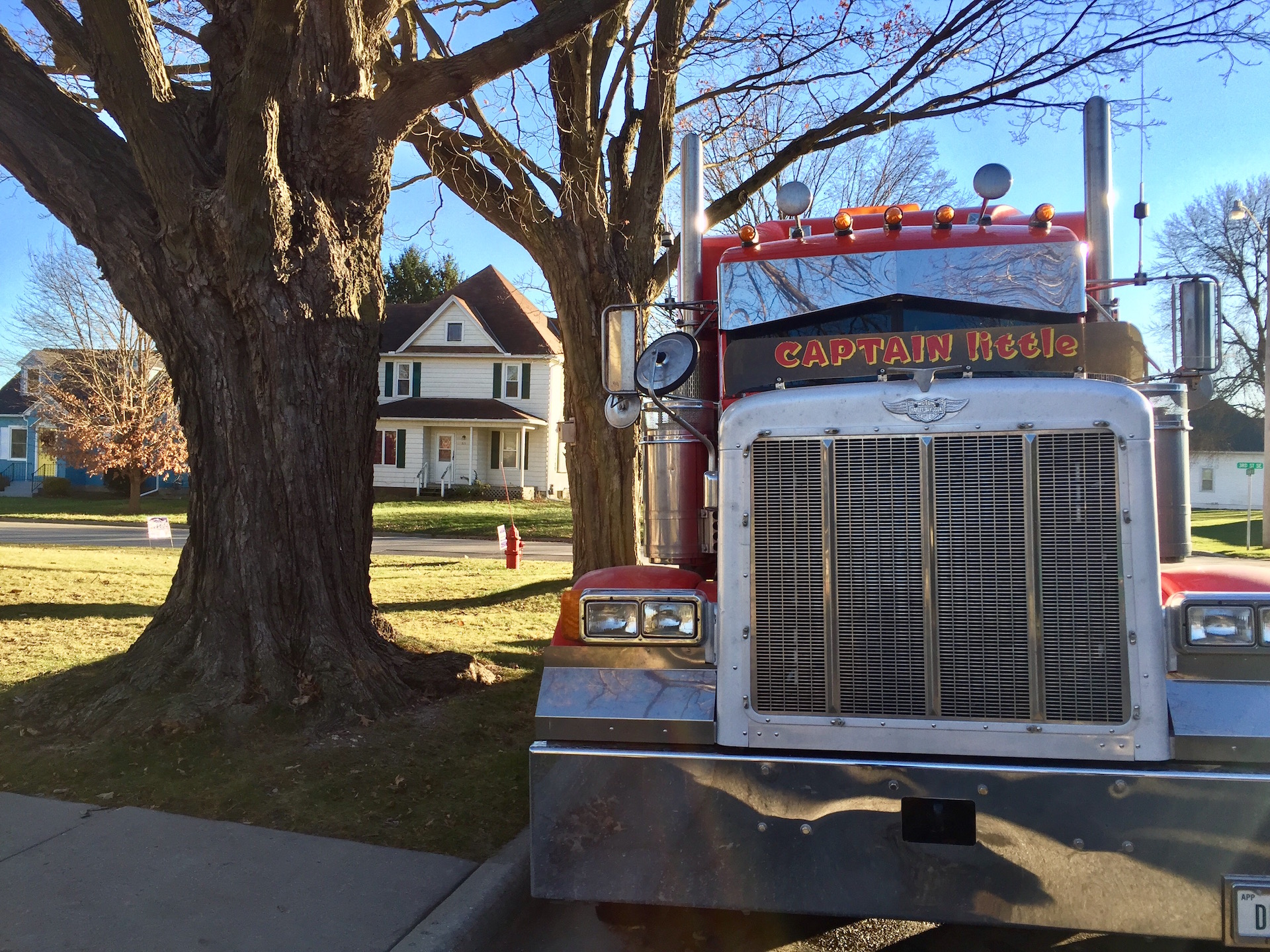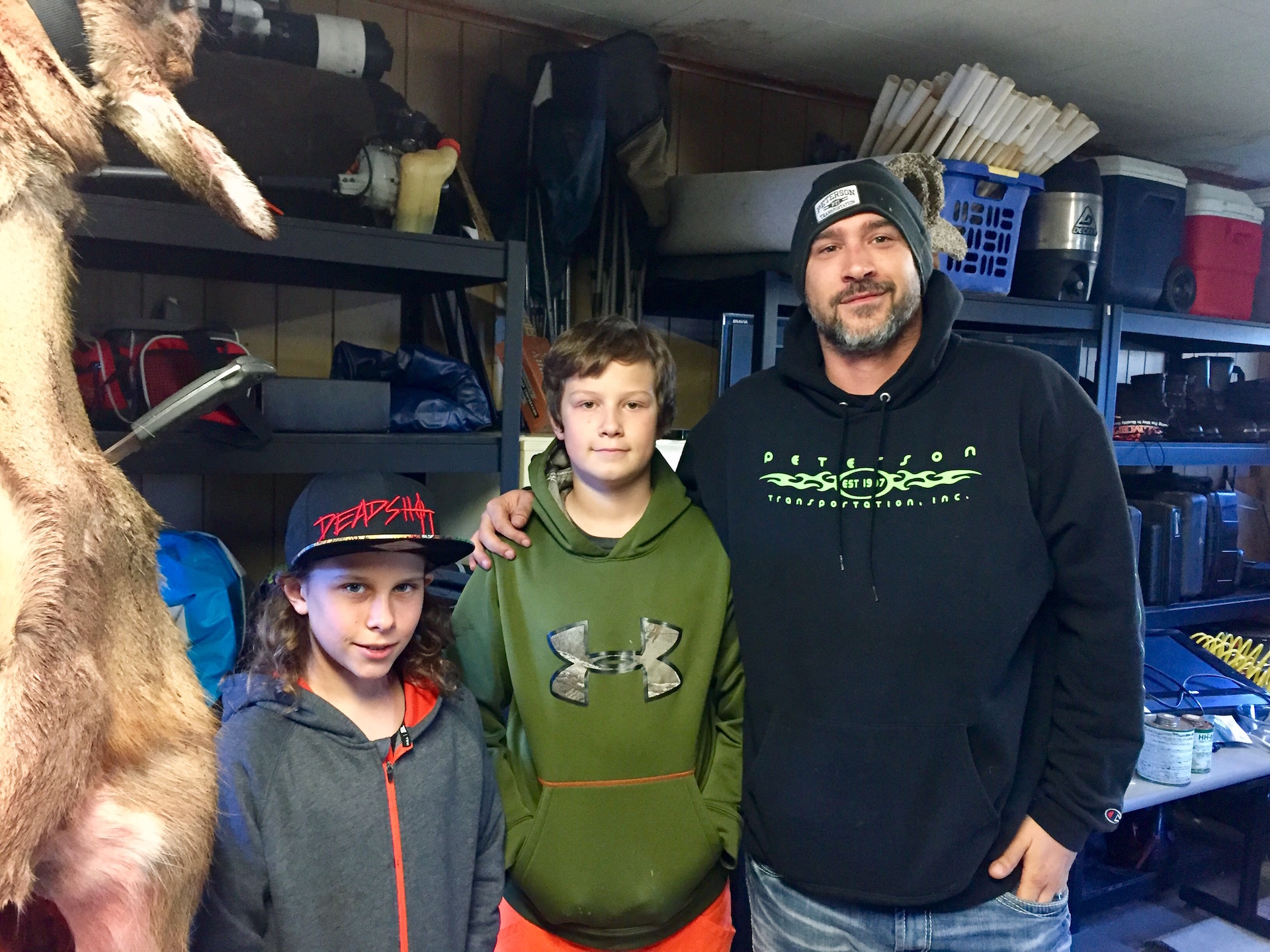After a successful opening weekend of hunting season, Robert Schmidt, 34, and his two sons, were dragging a doe out from the back of a pickup truck. The garage door was open and Schmidt could be seen tethering the deer to the rafters. As three students approached his driveway, Schmidt sunk his knife into the side of the deer, and welcomed them into his garage.
“It is not in his (Trump) best interest to be president,” said Schmidt. “It’s in the country’s.”
Enlarge

At first, Schmidt seemed guarded and had a look of caution. It is not every day that three students from the city pass through Harmony, Minnesota inquiring about political opinions. Nonetheless, Schmidt’s eagerness to talk politics evaporated any sense of uneasiness. He was willing to hear them out, but more than anything, wanted his voice to be heard.
On the way into the small town of Harmony, the click clack of an Amish horse drawn carriage can be heard as it makes its way into town. The downtown strip is peppered with wooden hand carved statues that are Norwegian themed, yet, oddly resemble gnomes. Emanating from bar windows and storefronts are the colors blaze orange and viking-purple, symbolic of not only hunting season but also football Sunday.
The heart of the neighborhood is mostly still, though, some residents were out tidying their lawns in preparation for the impending Minnesota winter. At the end of the block, an impressive red semi-truck sits out front of a corner house. Just above the shimmering steel grille of the truck, a sign reads, “Captain little.” Nearby, a row of several Trump signs guard the side of the home. This is where Schmidt lives.
Enlarge

What Schmidt had in common with other voters in the Mississippi River Valley is that he felt as though his voice was quelled by bought politicians and the media. Schmidt called for trusted media and said that this election had nurtured a sense of cynicism towards mainstream news that quickly spread across this region.
“You need to go to small places,” said Schmidt. “The media ran this election.”
Moreover, many counties along the Mississippi river valley have the lowest weekly wages in their state, respectively. The average weekly wage in Fillmore County is $649, according to the Bureau of Labor Statistics. Unemployment in Fillmore County peaked at nine percent in 2009 but has dropped to three percent by 2016, according to the Federal Reserve Bank of St. Louis. The unemployment rate stats of Fillmore county seem to indicate that there is an increase in jobs. However, this doesn’t necessarily mean that the jobs available offer a living wage. Between the cost of housing, living and food, $649 a week is not a livable wage, especially for a family. This fact is perhaps the reason why Trump’s jobs rhetoric appealed to so many people in the Mississippi River Valley.
Enlarge

In 2012, Minnesota became the first state outside of the South to vote Democratic in 10 straight presidential elections, according to Smart Politics. The same year, Fillmore County, which includes the town of Harmony, went blue by about 7.3 percent. What is even more intriguing is that in 2016, Fillmore County went red by more than 21 percent. This county as well as many other counties in rural Minnesota followed this trend, often flipping by more than 10 percent. For this reason, it is no surprise that Trump only lost by a mere 1.5 percent in Minnesota. Fillmore County, and other counties along the
The Biggest Little Town
With a population of just over 1,000, Harmony is predominantly a farming community. Corn, stock and small grain are the principle products raised here. Harmony bills itself as the “Biggest Little Town” in the southeastern corner of Minnesota. Besides local farming, the town features the largest Amish community in the state. A small tourism industry pertaining to the Amish culture has developed here. In addition to the businesses the Amish themselves run, visitors to the area are catered to by tour companies which visit Amish farms and merchants and provide information on the community and Amish way of life.
Schmidt’s garage was your average man cave containing a workbench, wooden pegboards stocked with tools, and even a red multi-level toolbox on wheels. His son was sitting close by keeping quiet, yet, listening to his father intently. Schmidt has been a conservative ever since he could remember. Schmidt drove his semi for six years before attending an 18-week college course. Over the last decade. Schmidt has driven his rig through 40 states. He said he was happy with the outcome of the election but not with how the other side took it. Within the last year, he has been held up in traffic by Black Lives Matter highway protesters.
“Wanna make a movement?” said Schmidt. “Do it. Don’t block the highway.”
Enlarge

Schmidt mentioned that he had written a letter to the editor of the Fillmore County Journal about Minnesota House Representative, Greg Davids. In the letter, Schmidt talked about how he felt that Davids destroyed the homestead credit, and how Schmidt supported him despite the “tire plant debacle.” More information on the tire plant can be found here as well as an opinion piece here. Schmidt said the reason he supported Greg Davids is because he is against the immigration of unvetted refugees to the country as well as the state. Nevertheless, Schmidt felt that even though he wrote Davids, his voice would not be heard by those in office.
“I’ll probably never hear back from him,” said Schmidt. “While I’m a proud American today, I’m ashamed of my home state.”
Schmidt said he voted for Trump as a business man, not a person. He said he was eager for president-elect Donald Trump to take office.
“All you can say is give him four years,” said Schmidt.